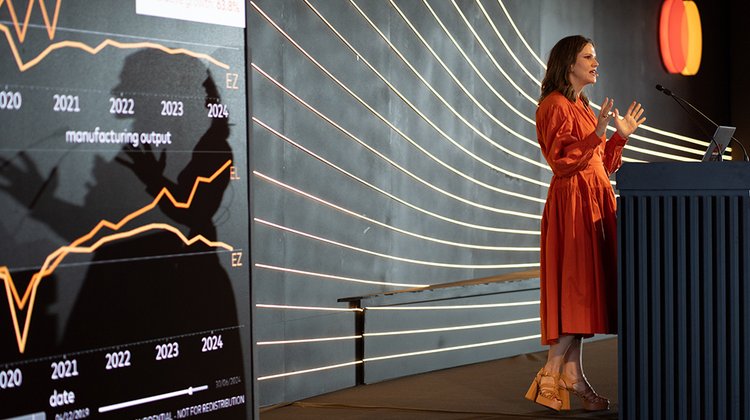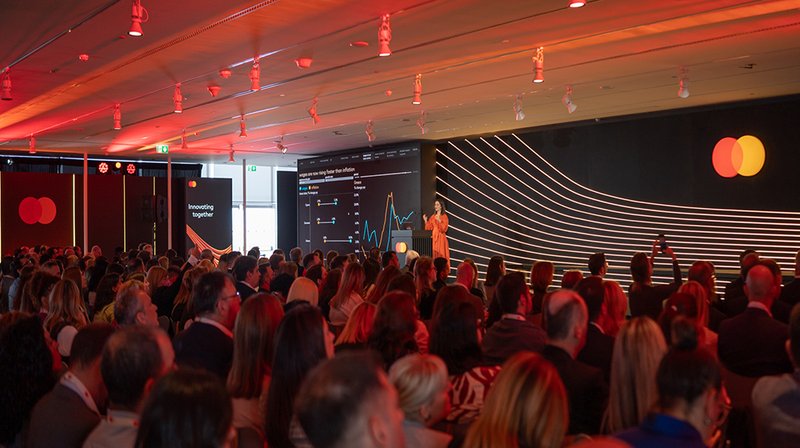Mastercard’s Natalia Lechmanova: Cyprus’ economy has experienced an incredible recovery since the pandemic
07:29 - 25 November 2024

The Chief Economist Europe at Mastercard, Natalia Lechmanova, has underlined the strong recovery Cyprus' economy has experienced following the pandemic, noting, "The pace of growth has been four times faster than that of the Eurozone as a whole"
Elaborating within the framework of a recent interview, Lechmanova described the island's financial recovery as "incredible," explaining, "It has been the third fastest growing economy in the Eurozone, having expanded by 15.3% from December 2019 through Q2-2024, based on Mastercard Economics’ Institute review of the full market’s economic data. The pace of growth has been four times faster than that of the Eurozone as a whole, which grew by only 3.9% during that time."
As part of the same interview, she also talks about how inflation and other factors have influenced consumer behavior in Cyprus.

With Cyprus experiencing strong post-pandemic economic performance in sectors like household consumption, exports, and employment, how do you see this resilience shaping the economic landscape in Cyprus? Specifically, how might the uplift in discretionary spending, particularly in categories like travel and dining, influence the broader economy?
Cyprus has experienced an incredible recovery since the pandemic. It has been the third fastest growing economy in the Eurozone, having expanded by 15.3% from December 2019 through Q2-2024, based on Mastercard Economics’ Institute review of the full market’s economic data. The pace of growth has been four times faster than that of the Eurozone as a whole, which grew by only 3.9% during that time. The recovery has been broad-based, driven by household consumption, investment, government spending, and by exports, which have in turn been driven by the incredible rebound in tourism.
Consumer spending behaviour tends to be sticky. We still see that discretionary spending dominated by having fun and looking good. The share of spend on travel is still rising as is spending on “things” that are connected to experiences such as apparel and beauty. Consumers are also spending more on electronics, something we stocked up on during the pandemic and thus did not spend a lot of in recent years, but as average replacement cycle for electronics is around 4 years, we are beginning to see that demand come back.
While headline inflation aligns with the ECB’s target, renewed pressures on food prices and services are present. Based on Mastercard Economics Institute's review of the full market’s economic data, how might these pressures influence consumer behavior in Cyprus across all tender types? Additionally, in light of ongoing communications about consumer health, what role does price consciousness play in current spending trends?
Meanwhile, inflation pressures have significantly moderated from the 10.6%y/y peak in 2022. Headline inflation remained at 1.6%y/y in October, same level as in September, and below the ECB’s target of 2%. This is driven by strong disinflation and energy and goods prices, while indeed we have seen renewed pressures in services and food prices. Services, and to some extent food prices too, are dependent on cost of labour and nominal wage growth in Cyprus, as in much of Europe, has been very strong feeding into those price pressures. This is something to watch from the inflation perspective, but it is also improving consumer fundamentals. Growth in real disposable incomes, which is the wedge between nominal wage growth (currently at 5.3%y/y) and inflation rate (1.6%y/y), has improved consumers purchasing power.
Consumer fundamentals have also been supported by resilient labor market defined by job creation and historically low unemployment. Although the unemployment rate ticked up slightly this summer, from 4.8% in May to 5.4% in August, it is lower than it was last year and certainly well below longer-term average of 7.5%.
How is the higher purchasing power translating into spending behaviour? At the peak of the inflation shock in 2022, when energy inflation was 49% y/y and food inflation 11.7% y/y, spending on essentials used up much of the consumer budgets (based on spend across all tender types). Because this period also coincided with the pandemic reopening, whatever money consumers had left in their pocket, was spent on having fun – going out to eat, travelling. Today, with purchasing power rising, and inflation on essentials much lower, the wallet space on discretionary spending has opened up more.

